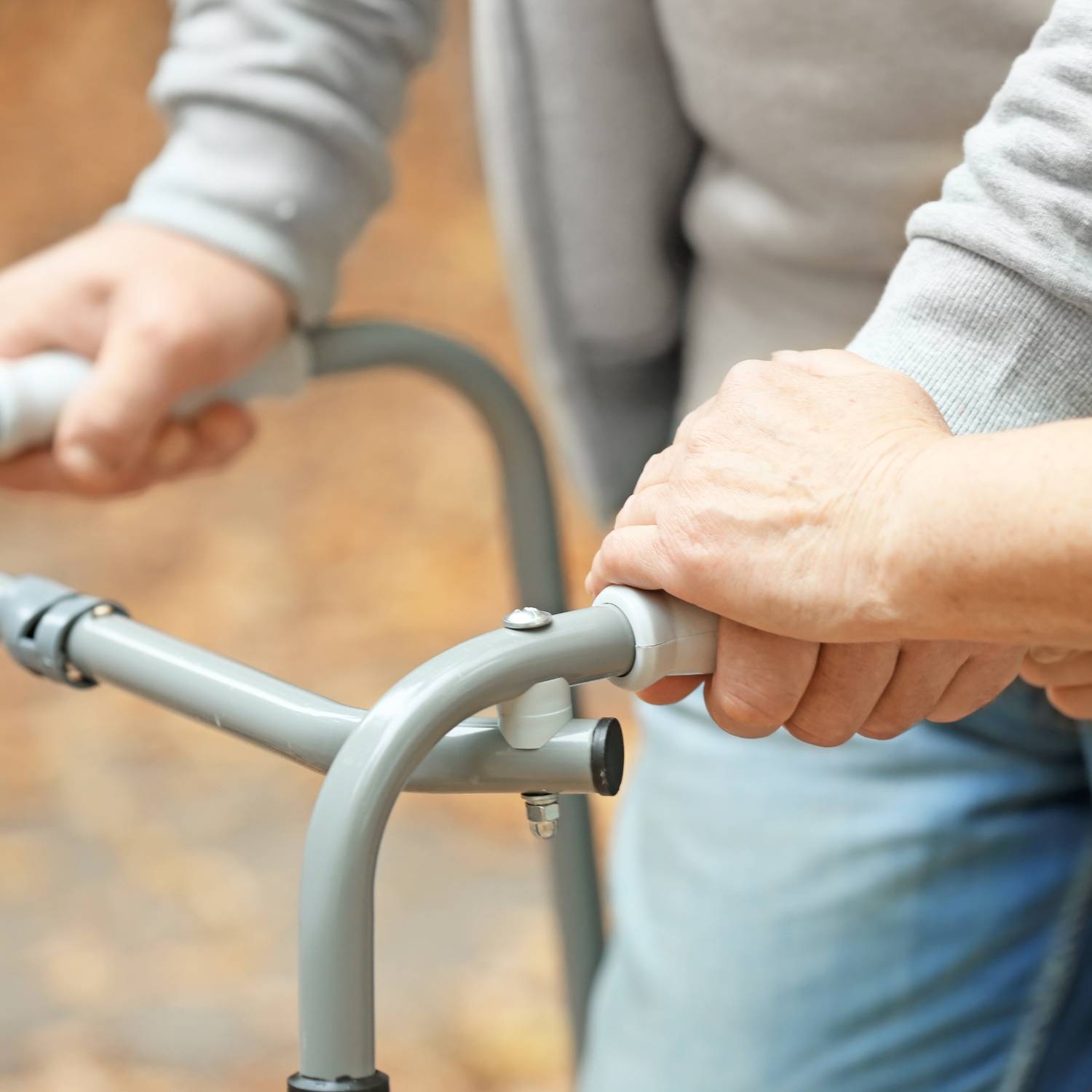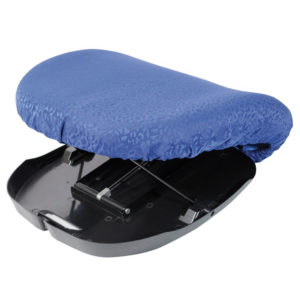The Premier Mobility Walkers For Seniors & Mobility Aids
View our huge tried-and-tested range of mobility walkers & aids for seniors. Each product is individually tested and selected for high quality and function, yet affordable on your pocket. We specialise in providing a wide range of senior and disability mobility aids that make daily living easier. So you can live your life, your way.
Frequently Asked Questions

-
DO YOU HAVE A SHOP LOCATION?
We are a “online supplier”, with no physical shop or premises. In this way, we are able to pass our considerable savings directly to you.
-
WHAT ARE YOUR DELIVERY OPTIONS AND HOW LONG WILL IT TAKE?
- AUSTRALIA: Free delivery, 5-7 days
- Other countries: Free delivery, 7-10 days
OUR DELIVERY PARTNERS

-
DO I GET A RECEIPT FOR MY ORDER?
You will be sent a receipt for your order by email after payment is made. You will also receive a confirmation email with a tracking number once your item has been shipped.
-
WHAT CURRENCY ARE THE PRICES DISPLAYED IN?
All of our prices are displayed in $AUD
-
I HAVEN'T RECEIVED MY ORDER YET! IS IT LOST?
If you have any concerns with your order, please contact our support team by email and they will be glad to assist you. Most emails are answered within 1 business day.
Support Team: [email protected]
-
HOW DO I KNOW IF MY ORDER HAS BEEN SHIPPED?
Once your order is shipped, it will be marked as complete in our database and you will receive a confirmation email with a tracking number.
-
WHICH PAYMENT METHODS ARE ACCEPTED?
We currently only accept credit card payments, PayPal & Crypto currency. More payment methods will be added in the future.
-
What factors should be considered when choosing Mobility Aids for the elderly?
When choosing Mobility Aids for the elderly, consider the user’s mobility level, weight capacity, lifestyle, and the terrain they will navigate to ensure the aid meets their specific needs.
-
What training or support is available for users of Mobility Walkers For Seniors?
Training and support for users of Mobility Walkers For Seniors often include instructional manuals, online tutorials, and physical therapy sessions to ensure safe and effective use.
-
How do Walking Aids support seniors with arthritis?
Walking Aids support seniors with arthritis by reducing pressure on joints, offering ergonomic handles for comfortable grip, and enabling smoother movement with less pain.
-
What considerations are important for seniors using Walking Aids on different terrains?
For seniors using Walking Aids on different terrains, important considerations include choosing aids with appropriate wheels for outdoor surfaces and ensuring stability on uneven ground.
-
How do Mobility Walkers For Seniors aid in post-surgery recovery?
Mobility Walkers For Seniors aid in post-surgery recovery by providing support during movement, reducing strain on healing parts, and promoting independence and mobility during the recovery phase.
-
What is the environmental impact of Mobility Walkers For Seniors?
The environmental impact of Mobility Walkers For Seniors is minimized through the use of recyclable materials and durable designs that extend the life of the product, reducing waste.
-
What accessories are beneficial with Mobility Aids?
Beneficial accessories for Mobility Aids include baskets for carrying personal items, trays for transporting food and drinks, and reflective tapes for visibility, enhancing convenience and safety.
-
How do Mobility Walkers For Seniors facilitate rehabilitation?
Mobility Walkers For Seniors facilitate rehabilitation by encouraging movement with support, aiding in muscle strength recovery, and improving coordination and balance post-injury or surgery.
-
Can Mobility Aids be covered by insurance or Medicare?
Many Mobility Aids may be covered by insurance or Medicare under durable medical equipment, subject to specific conditions and requirements, offering financial relief to users.
-
What are the key trends in the development of Walking Aids for seniors?
Key trends in the development of Walking Aids for seniors include the integration of technology for health monitoring, increased customization options, and designs focused on user comfort and style.
-
What is the weight capacity of Walking Aids for seniors?
The weight capacity of Walking Aids for seniors varies, with most supporting between 250 to 500 pounds, catering to a wide range of user needs for safety and stability.
-
Can Mobility Walkers For Seniors be used both indoors and outdoors?
Yes, Mobility Walkers For Seniors are versatile, with models designed for smooth indoor use and rugged outdoor activities, enhancing freedom and independence everywhere.
-
How do Walking Aids contribute to preventing falls in seniors?
Walking Aids contribute to preventing falls by providing sturdy support, improving balance, and reducing fatigue during movement, significantly lowering the risk of accidents.
-
Can Mobility Aids be customized for individual needs?
Absolutely, Mobility Aids can be customized with adjustable heights, interchangeable wheels, and various accessories, ensuring a perfect fit for individual mobility requirements.
-
What are the latest innovations in Walking Aids for seniors?
The latest innovations in Walking Aids include lightweight materials, foldable designs for easy transport, and smart features like step counters and GPS, enhancing usability and safety.
-
What materials are Mobility Walkers For Seniors made from?
Mobility Walkers For Seniors are made from materials like aluminum and carbon fiber, offering a blend of durability and lightweight for easy handling and long-lasting use.
-
How do Mobility Aids improve quality of life for the elderly?
Mobility Aids drastically improve the elderly’s quality of life by enabling them to participate in activities they love, maintaining social connections, and fostering a sense of autonomy.
-
What are the main benefits of Mobility Walkers For Seniors?
Mobility Walkers For Seniors provide stability, reduce fall risk, and enhance independence. Studies show a 30% improvement in mobility among users, significantly boosting confidence in daily activities.
-
What role do Mobility Aids play in senior fitness and exercise?
Mobility Aids play a crucial role in senior fitness by supporting safe walking and exercise routines, promoting physical health, and enhancing stamina and cardiovascular health.
-
What warranty options are available for Mobility Walkers For Seniors?
Warranty options for Mobility Walkers For Seniors typically range from one to five years, covering manufacturing defects and ensuring long-term reliability and satisfaction.
-
How do Walking Aids enhance outdoor activities for seniors?
Walking Aids enhance outdoor activities by offering durable designs for various terrains, ensuring seniors can enjoy walks, gardening, and outdoor events safely and comfortably.
-
Can Mobility Aids be used in conjunction with other assistive devices?
Yes, Mobility Aids can be used in conjunction with other assistive devices, such as wheelchairs or scooters, for comprehensive mobility solutions tailored to individual needs and preferences.
-
How do Walking Aids adjust to different heights and sizes?
Walking Aids adjust to different heights and sizes with telescoping legs or push-button mechanisms, ensuring a comfortable and ergonomic fit for users of various statures.
-
Can Mobility Aids be easily transported and stored?
Yes, many Mobility Aids are designed with portability in mind, featuring lightweight frames and foldable designs for easy transport and storage in vehicles or closets.
-
What safety features should be considered in Mobility Aids?
Safety features in Mobility Aids should include sturdy frames, easy-to-use brakes, and non-slip grips, ensuring maximum stability and accident prevention during use.
-
How do Mobility Aids impact the independence of seniors?
Mobility Aids significantly impact the independence of seniors by enabling them to perform daily activities and engage in social outings without extensive assistance, enhancing their quality of life.
-
What is the cost range for high-quality Mobility Walkers For Seniors?
High-quality Mobility Walkers For Seniors range from $50 to $400, depending on features like material, adjustability, and added functionalities like seats and storage.
-
How do Mobility Walkers For Seniors accommodate for storage and convenience?
Mobility Walkers For Seniors accommodate for storage and convenience with built-in baskets, pouches, and foldable designs, allowing users to carry personal items and easily store the walker when not in use.
-
How do Walking Aids support seniors with limited hand strength?
Walking Aids support seniors with limited hand strength through ergonomic grips and easy-to-activate brakes, reducing the need for strong hand pressure and making movement safer.
-
What types of Walking Aids are available for seniors?
Available Walking Aids for seniors include rollators, standard walkers, and canes, each designed to meet specific mobility needs and preferences, ensuring safer and more confident movement.

Enhancing Mobility and Independence: The Essential Guide to Mobility Walkers for Seniors
In the golden years of life, maintaining mobility and independence is paramount for overall well-being. Mobility walkers, a cornerstone among “Mobility Aids” for seniors, play a vital role in ensuring that the elderly can continue to navigate their world safely and confidently. These devices, often referred to as “Walking Aids,” are designed to cater to various levels of mobility challenges, offering support for those who need assistance in maintaining balance and stability while walking. This blog post delves into the world of mobility walkers for seniors, exploring their benefits, the different types available, and how to choose the right one to meet individual needs.
The Importance of Mobility Walkers
For many seniors, mobility walkers are more than just a tool; they’re a lifeline to independence. These walking aids help reduce the risk of falls, provide support for post-operative recovery, and alleviate pressure on joints and muscles. By enhancing stability and balance, mobility walkers enable seniors to engage in daily activities with less fatigue and more confidence, contributing significantly to their quality of life.
Types of Mobility Walkers for Seniors
-
Standard Walkers: These are the simplest form of walkers, consisting of a frame that the user lifts and places forward with each step. They’re best suited for those who require considerable support and can manage the lift that this type of walker demands.
-
Rollators: Equipped with wheels on all legs, rollators come with features like hand brakes, seats, and sometimes even baskets. They’re ideal for individuals who can walk but need support for balance and stability, offering the ease of movement without the need to lift the walker.
-
Two-Wheel Walkers: A hybrid between standard walkers and rollators, these walkers have wheels on the front two legs, combining the stability of a standard walker with the ease of movement provided by a rollator.
-
Specialty Walkers: Designed for specific conditions or needs, such as walkers with larger wheels for outdoor use or hemi-walkers for those with use of only one hand, the market also offers various specialized options.
Choosing the Right Mobility Walker
Selecting the appropriate mobility walker is crucial for ensuring it effectively meets the needs of the senior. Consider the following factors when making a choice:
-
Mobility Needs: Assess the level of support required. For significant balance issues, a standard walker may be best, while rollators offer more freedom for those with mild to moderate support needs.
-
Environment: Consider where the walker will be used. Outdoor use or uneven terrain may require a rollator with larger wheels, while compact walkers may be better suited for indoor use.
-
Features: Look for walkers with features that match the user’s lifestyle. For example, a walker with a seat might be ideal for someone who tires easily and needs to rest frequently.
-
Adjustability and Comfort: Ensure the walker is adjustable to fit the user’s height and is comfortable to use, with ergonomic grips and easy-to-use controls.
-
Consultation with Professionals: Before making a purchase, consulting with a healthcare provider or physical therapist can provide valuable insights into the most suitable type of walker.
Conclusion
Mobility walkers for seniors are indispensable in promoting independence, safety, and an active lifestyle. With the right “Mobility Aids” and “Walking Aids,” seniors can navigate their daily lives with more ease and confidence. Whether it’s a simple walk in the park, moving around the house, or shopping, the right mobility walker can make a significant difference in the quality of life for the elderly. By understanding the different types available and considering the individual needs of the user, families and caregivers can make informed decisions, ensuring their loved ones receive the support they need to remain active and engaged.

